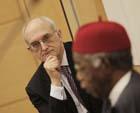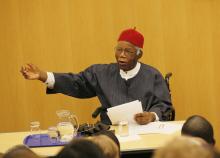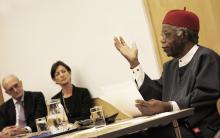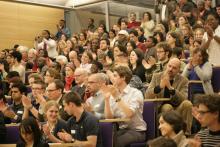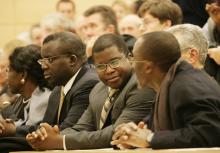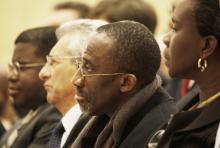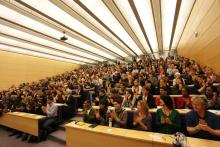Professor Chinua Achebe, Nigeria’s Promise, Africa’s Hope, 2010
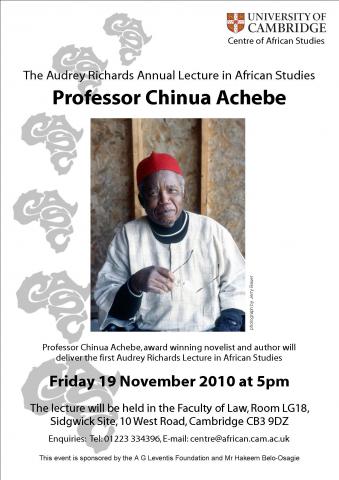 Professor Chinua Achebe
Professor Chinua Achebe
Nigeria's Promise, Africa's Hope
An audience of around 600 people gathered on Friday 19 November 2010 in the Law Faculty to listen to Professor Chinua Achebe deliver the first Audrey Richards Annual Lecture in African Studies. They came from around the country to hear one of Africa's most respected novelists and intellectuals deliver a paper which reflected deeply on the legacy of colonialism and the complex challenges faced by his own country, Nigeria, in the twenty-first century. Professor Achebe was greeted by a standing ovation at the beginning and the end of his talk, which was introduced by the Vice Chancellor, Professor Sir Leszek Borysiewicz, who spoke of Professor Achebe's many honours and achievements.
The annual lecture was generously sponsored by the A.G. Leventis Foundation.
Support for this occasion was also provided by Mr. Hakeem Belo-Osagie.
Photography by Damian Gillie
Lecture Abstract
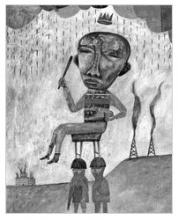
AFRICA has endured a tortured history of political instability and religious, racial and ethnic strife. In order to understand this bewildering, beautiful continent — and to grasp the complexity that is my home country, Nigeria, Africa’s most populous nation — I think it is absolutely important that we examine the story of African people. In my mind, there are two parts to the story of the African peoples ... the rain beating us obviously goes back at least half a millennium. And what is happening in Africa today is a result of what has been going on for 400 or 500 years, from the “discovery” of Africa by Europe, through the period of darkness that engulfed the continent during the trans- Atlantic slave trade and through the Berlin Conference of 1885. That controversial gathering of the leading European powers, which precipitated the “scramble for Africa,” we all know took place without African consultation or representation. It created new boundaries in ancient kingdoms, and nation-states resulting in disjointed, inexplicable, tension-prone countries today. During the colonial period, struggles were fought, exhaustingly, on so many fronts — for equality, for justice, for freedom — by politicians, intellectuals and common folk alike. At the end of the day, when the liberty was won, we found that we had not sufficiently reckoned with one incredibly important fact: If you take someone who has not really been in charge of himself for 300 years and tell him, “O.K., you are now free,” he will not know where to begin.

